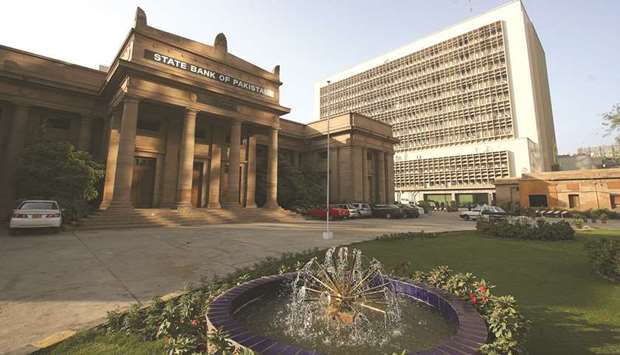The SBP has referred to sections 231 A and 231 AA of the Income Tax Ordinance pertaining to the withholding taxes (WHT) on the cash withdrawn and banking transactions in cash.
The advance tax 0.3% for filer and 0.5% for non-filers is collected on cash withdrawal if the total sum of withdrawal exceeds Rs50, 000 per day.
The SBP has proposed that the advance tax rate should be rationalised to 0.1% for filers. All the cash loan disbursements to microfinance borrowers and agricultural loan borrowers should be exempted from the withholding tax.
Accordingly, the SBP proposed that Section 231A may be revised as every banking company shall deduct tax at the rate specified in Division VI of Part IV of the First Schedule.
To accommodate the compliant taxpayers, the SBP suggested that further relief may be extended in terms of the withholding tax charged on the cash withdrawals.
It is suggested that the withholding tax for the tax filers may be reduced and the withholding tax shall be charged to non-filers at the existing rate. Such measures will help increasing the documentation of economy and will promote financial inclusion.
Similarly, the higher rate for non-filers will motivate them to become tax filers in order to avoid the additional cost. To exempt this WHT on the micro borrowers particularly farmers and Microfinance borrowers, the SBP argued it is a burden on them.
These borrowers are facing the burden while utilising financing facility due to additional cost of WHT on cash withdrawal from their loan accounts. The tax is affecting low-income clients who do not fall within the tax payable brackets.
This tax, adds to the cost of doing business for the financially vulnerable individuals whom the government is also trying to support by taking a number of measures.
The SBP has also proposed amendment in section 236P – Advance tax on banking transactions other than through cash. The advance tax at the rate of 0.6% (currently 0.4%) has been imposed on all non-filers including those not liable to pay tax e.g. where their income falls below the taxable threshold, tax is deducted at source on all of their taxable income or they are otherwise exempt from tax.
This section should ideally be removed. If that is not possible exemption should be provided to students, widows, pensioners, salaried class and farmers, the SBP proposed.
The removal of the WHT on banking transactions would facilitate the financial inclusion strategy of the SBP. The WHT on non-cash banking transactions led to an increase in currency in circulation and a decline in private business deposits.
That decline further triggered a hike in currency in circulation, which grew by 21.5% on average during July 2015 to June 2017.
Private business deposits as a percentage of total deposits, on the other hand, declined from 27.6% to 25% after imposition of the WHT on banking transactions.
This shows that the imposition of the WHT on banking transactions apparently defeated the very purpose for which it was imposed that is, to discourage the cash economy.
According to the annual report of the State Bank of Pakistan for the year 2016-17, the WHT on cash transaction did not trigger significant hike in Currency in Circulation, but the WHT on Non Cash Banking Transactions has led to a significant hike in Currency in Circulation.
This analysis suggests that the imposition of WHT on non-cash banking transactions needs rethinking.
The widows and pensioners receive very low compensation, income that also falls below the taxable threshold.
And in case they are able to save something, tax is deducted on its withdrawal that is unfair as they cannot claim credit for the amount deducted being not liable to file return.
Similar is the case with the students who do not have any source of income that is liable to tax and accounts are being maintained by them solely for payment of fee and to meet their educational and boarding expenses.
Due to increase in fee from educational institutions, they have to make payments exceeding the taxable threshold that is subjected to tax.
It is pertinent to mention here that the Educational Fee is already subjected to tax @5% u/s 236-I if the fee exceeds Rs200,000 therefore, charging tax on students account again would be double taxation and students cannot claim the credit of amount deducted as they are not liable to file Income Tax Return, the SBP added.
The State Bank of Pakistan has proposed the enhancement in the limit of Rs50,000 to Rs100,000 for collection of advance tax on cash withdrawals and online transfers by small and medium enterprises and three-year tax holiday for women entrepreneurs and start-ups for small businesses in budget (2018-19).

